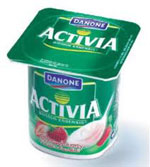WITH no miracle in sight, Roman Catholic churches are being asked to ration wine in the latest shortage to illustrate Venezuela’s economic troubles.
“We’re asking the priests and bishops to ration wine, and look for alternatives during this emergency,” said Jose Antonio Da Conceicao, a national church official.
Church leaders say the problem arose when the local supplier of the specialty sacramental wine used at Mass had a bad harvest. They turned to importers, but the companies told them it was impossible to obtain dollars to bring the wine into the country because of Venezuela’s strict currency controls.
That has been a common complaint of private businesses against Venezuela’s socialist government under late President Hugo Chavez and his successor, Nicolas Maduro.
Basic products, from dairy products to wheat flour and diapers to toilet paper, have been increasingly hard to find in Venezuela, causing long queues, and even scuffles in shops.
Maduro says right-wing opponents and unscrupulous businessmen are trying to sabotage the economy and his new administration by hoarding products.
He has chastised Venezuelans for unnecessary “panic-buying”, and met with business leaders to seek solutions amid widespread mockery over the shortage of toilet paper.
The shortage of wheat flour has also hit production of the bread used for communion, church leaders say.
Meanwhile, the local Catholic Church has given priests permission to use different types of wine for communion.
“In extreme necessity … they can provisionally use Chilean or Argentine wines of good quality; French, Spanish and Italian too, but they are very expensive,” said an internal church memo. (Reuters)
Eating yoghurt may ease anxiety, stress EATING probiotic-rich yogurt twice a day for a month could help relieve anxiety and stress by reducing activity in the emotional region of the brain, a small new study suggests.
EATING probiotic-rich yogurt twice a day for a month could help relieve anxiety and stress by reducing activity in the emotional region of the brain, a small new study suggests.
Researchers from UCLA’s School of Medicine in the US recruited 36 women in a study that found a twice daily yogurt habit was linked with lower levels of activity in areas of the brain responsible for emotion and pain. Also the yogurt eaters had increased activity in areas associated with decision making, the researchers said.
“Many of us have a container of yogurt in our refrigerator that we may eat for enjoyment, for calcium, or because we think it might help our health in other ways,” said lead researcher, Dr. Kirsten Tillisch.
“Our findings indicate that some of the contents of yogurt may actually change the way our brain responds to the environment.”
Prior research on rats has shown that the brain sends signals to the gut, which is why stress and other emotions can contribute to gastrointestinal symptoms, the researchers said. But no research has confirmed the same effect happens in the human brain.
In the study, subjects, all of healthy weight and aged between 18 and 53, were split into three groups, with one eating a yogurt with live bacterial cultures twice a day for a month, another group eating a dairy product with no living bacteria, and the third group given no dairy products at all.
Functional magnetic resonance imaging (fMRI) scans conducted both before and after the four-week study period looked at the women’s brains in a state of rest and in response to an emotion-recognition task, where they viewed a series of pictures of people with angry or frightened faces and matched them to other faces showing the same emotions.
The researchers found that, compared with the women who didn’t consume the probiotic yogurt, those who did showed a decrease in activity in both the insula — which processes and integrates internal body sensations, like those form the gut — and the somatosensory cortex during the emotional reactivity task.
Further, in response to the task, these women had a decrease in the engagement of a widespread network in the brain that includes areas associated with emotion, cognition, and sensory perception.
Dr. Emeran Mayer, who worked on the study, said it is possible that changing the composition of gut bacteria could lead to treatments for chronic pain disorders, as well as symptoms of brain conditions like autism, Parkinson’s, and Alzheimer’s disease, and could help improve mood symptoms over time.
“Time and time again, we hear from patients that they never felt depressed or anxious until they started experiencing problems with their gut,” Tillisch said. “Our study shows that the gut-brain connection is a two-way street.” (Sowetan)



.jpg)










